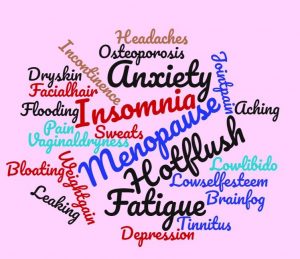The Stress Belly Fat Link
Ah, the notorious budda belly. The meno-pot. That stubborn pouch that seems to stick around no matter what you do. Who can relate? 🙌 But did you know the stress belly fat link has absolutely nothing to do with eating too many calories?
Are you tired of struggling with outfit choices and feeling less confident due to that lingering spare tire? Does the idea of banishing your muffin top sound like a dream come true? I hear you loud and clear!
Countless fad diets promise a magic solution to rid you of belly fat forever. But here's the truth: unless we address the underlying reasons why our bodies store fat there, we'll find it difficult to achieve lasting weight loss—and it's way more complex than just cutting out junk food!

Understanding Belly Fat for Women Over 40
Here's a fascinating revelation: as we gracefully age beyond 35, our sex hormones begin to decline. Most of these hormones are produced in our ovaries, but there's another gland involved—the adrenal glands. As our ovaries wind down their hormone production, the adrenals take on a more significant role, trying to compensate (albeit not enough) for what we lose.
However, this added burden on our adrenal glands can lead to imbalances in their other functions, including controlling our stress response. And guess what? Stress hormones have a sneaky way of encouraging our bodies to store fat around the belly (aka the stress belly fat link). So, even if you haven't made any drastic changes to your diet, hormonal shifts can trigger that expanding midsection.
Yes, we all understand that weight loss is influenced by our food choices, but when specific areas of our bodies stubbornly hold onto excess weight, it's a clear signal that our hormones are playing a significant role, especially as women in perimenopause and menopause.
Let's face it: living in a constant calorie deficit isn't the answer (who ever thought, "I could do this forever" while counting out their meager portion of almonds? 🙄). If you're tired of trying endless approaches with minimal results, it's time to explore the fascinating link between stress and belly fat.
By addressing the stress belly fat link and finding ways to balance our hormones naturally, we can embark on a more holistic and sustainable weight loss journey. It's time to prioritize our well-being and embrace a path that nourishes both our body and mind.

Stress—we all experience it to some degree, don't we? When's the last time you said "I am so stressed out!"
Sometimes it's temporary, known as acute stress, while other times it lingers, turning into chronic stress.
Acute stress is typically harmless, even beneficial, as it's our body's natural response to certain circumstances. In fact, it can be a life-saving mechanism. Once the "threat" or stressor fades away, our body's reaction subsides, and harmony is restored.
However, chronic stress is where the real trouble lies. You see, our bodies have intricate stress reactions designed to cope with challenges. But when these reactions are triggered day in and day out, or multiple times within a day, it starts to take a toll on our well-being.
The stress belly fat link, along with its associated hormones, holds significant power over our health and our hormonal balance.
So, let's dive headfirst into the intriguing realm of the "stress mess." and take a look at the intricate ways in which stress impacts our physical and mental well-being.
Stay tuned for enlightening insights that will empower you to take charge of stress and cultivate a healthier, more balanced life.

Stress Mess #1 - Increased risk of
heart disease and diabetes
Why wait to tackle the most critical topics? When it comes to matters that raise the risk of heart disease and diabetes—both serious and chronic conditions—it's crucial to address them head-on.
Stress, in particular, plays a pivotal role in amplifying the likelihood of developing these health concerns. How? By triggering a cascade of effects that promote chronic inflammation, influence blood viscosity (thickness), and impact our cells' response to insulin.
Chronic stress-induced inflammation wreaks havoc on our bodies, increasing the risk of heart disease. It disrupts the delicate balance within our blood, affecting its thickness and flow, which can have detrimental consequences for cardiovascular health. Additionally, stress interferes with how our cells utilize insulin, leading to insulin resistance—a key factor in the development of diabetes.

Stress Mess #2 - Lowered Immunity
Have you ever noticed that when stress levels soar, your susceptibility to illness seems to skyrocket too? Perhaps you find yourself catching colds, developing cold sores, or even experiencing more frequent bouts of the flu during stressful periods.
Here's the science behind it: stress hormones exert a profound influence on the chemical messengers known as cytokines, which are released by immune cells. When stress takes center stage, these vital messengers become less capable of fulfilling their roles effectively.
In other words, stress interferes with the optimal functioning of our immune system, compromising its ability to ward off illnesses and infections. It's as if our immune cells are momentarily distracted, leaving us more vulnerable to health challenges.
Understanding this intricate connection between stress, immunity, and our overall well-being empowers us to take proactive steps in managing stress and nurturing our immune health.

Stress Mess #3 - "Leaky
Gut."
Stress can contribute to leaky gut syndrome, otherwise known as "intestinal permeability." These "leaks" can then allow partially digested food, bacteria or other things to be absorbed into your body.
The stress hormone cortisol can open up tiny holes by loosening the grip your digestive cells have to each other.
Picture this: Have you ever played "red rover?" It's a game where a row of children hold hands while one runs at them to try to break through. Think of those hands as the junctions between cells. When they get loose, they allow things to get in that should be passing right though. Cortisol (produced in excess in chronic stress) is a strong player in red rover!

Stress Mess #4 - Sleep Disruption
Have you ever noticed how stress and sleep intertwine, creating a delicate balance? It's no surprise that when important and stressful matters occupy our minds, getting a restful night's sleep can feel like an uphill battle.
But here's the catch: when we don't get enough sleep, it profoundly impacts various aspects of our lives. Our energy levels plummet, our memory and cognitive abilities falter, and our mood tanks. Sleep is also when our body and our minds heal.
Increasingly, research underscores the immense importance of quality sleep for our overall health and well-being. It's not just a luxury—it's a necessity. Insufficient sleep, combined with excessive stress, doesn't do us any favors.
Recognizing the vital connection between stress, sleep, and our physical and mental health empowers us to prioritize restorative sleep and adopt effective stress management strategies.
Stress-busting tips to take control of the stress belly fat link and your health
Reducing stressors in your life
is an obvious first step.
Can you:
● Put less pressure on yourself?
● Ask for help?
● Say "no"?
● Delegate to someone else?
● Finally, make that decision?
No matter how hard you try, you won’t eliminate stress altogether. So, here are a few things you can try to help reduce its effect on you:
● Deep breathing
● Meditation
● Walk in nature
● Unplug (read a book, take a bath)
● Exercise (yoga, tai chi, etc.)
● Connect with loved ones
Stress—a formidable force often underestimated in its influence on our well-being. Its effects extend far beyond what meets the eye, significantly impacting our physical body in ways we may not fully grasp and the stress belly fat link is just what we can see on the outside.
Research reveals the startling connection between stress and the heightened risk of heart disease and diabetes. But that's not all—stress permeates various aspects of our health. It can disrupt our immune system, unsettle our digestion, and even disrupt our precious sleep all of which can make us hold on to extra weight because our female bodies perceive danger.
The good news is that we hold the power to both reduce stressors and enhance our response to them. By unraveling the complexities of stress and prioritizing relaxation and mindfullness techniques, we can untangle ourselves from the clutches of this stress belly fat link.
Seriously. Some days it's just better to read a book or take a nap and shut out the world.

Recipe (relaxing chamomile):
Chamomile Peach Iced Tea
Serves 1
1 cup steeped chamomile tea, cooled
1 peach, diced
Place both ingredients into a blender and blend until smooth. Add ice if desired.
Serve & enjoy!
Tip: You can use fresh or frozen peaches
http://www.precisionnutrition.com/good-stress-bad-stress













